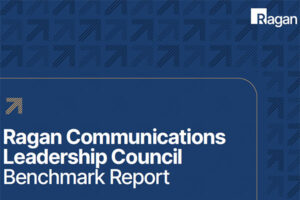Fostering global connection with internal comms
Even when teams are separated by hundreds or thousands of miles, comms can still help strengthen bonds.

In today’s post-pandemic workplace, it’s not uncommon to have remote teams that work in close conjunction but are separated by thousands of miles. But when your organization has people scattered across the globe who come from different cultures and communication norms, how can you create a common thread that fosters belonging and creates a healthy, positive work experience?
Turns out, you can create the conditions for a strong company culture place great distances —- but it’s incumbent on the communications department to put the building blocks in place that make it happen. With smart strategy and careful planning, you too can build a comms network that thrives across regions, time zones and cultures.
A focus on universal outreach
According to Linda Zebian, senior director of communications and community at Muck Rack, it all starts with creating an intentional strategy of universal outreach to promote a sense of unity.
“When you’re intentional about how you’re spreading information, you can avoid people missing things because they’re not physically in the office,” Zebian said. “By having policies and methods of outreach that are universal, you can maximize your reach.”
Zebian emphasizes the importance of picking the right channels when reaching out to a geographically distributed employee base. Her organization uses Slack, and it’s still critical to think about how Slack and messaging platforms like it are organized for maximum visibility and to foster a sense of inclusion regardless of physical location.
“We try to encourage our employees to keep their conversations in public Slack channels to diminish silos,” she said.
Muck Rack maintains a Slack channel specifically for company announcements to both maintain employee expectations and create a sense of place when relevant company news needs sharing. Zebian also shared that the organization started a company newsletter earlier this year in an effort to reach all employees at a regular clip, but in an alternate fashion to Slack.
“We’re constantly thinking of ways to reach employees in the most direct way possible,” she said. “We don’t want them to take time looking for things or feel out of the loop. We’re always thinking of new ways to get information to our employees.”
Unique communications for unique working arrangements
When you have employees across the world, a one-size-fits-all approach won’t cut it. According to Rachael Matthews, vice president, corporate communications at Group 1001, there are still channels and events to help employees who aren’t near an office feel like integral parts of company operations.
“Every employee likes to be communicated with in different ways,” Matthews said. But she added that people’s preferred communications channels could be used to encourage in-person connection as well.
“By encouraging employees to visit an organization’s other offices to meet their coworkers in person, you can build a really strong culture. But you can lay the groundwork for making that happen on your messaging channels,” she said.
Zebian added that virtual connections are critical because they can help strengthen the ones colleagues will build in person.
“It can be a big challenge to connect people when you’ve got people working virtually all over the world,” she said. “The big key is just connecting people as much as possible to build that bond.”
While connecting virtual employees in larger hub cities might seem like a solution, it does beg an important question —- what do you do about the ones that might be in smaller cities or farther-flung parts of the world? While Muck Rack does in-person events for employees located in their larger hubs like New York and Nashville, it doesn’t forget about people who might not be close to a physical office desk.
“Whether it’s a lunch stipend for a meeting they take virtually or social events that we do online to build bonding, there are definitely ways to build that sense of inclusion,” Zebian said.
Later this year, Muck Rack will fly all of their employees to an off-site, allowing many to meet face-to-face for the first time, and fostering deeper bonds, many of which were formed over webcams.
“If you can get it,” she added, “I think that face time is really important,” she said.
Sean Devlin is an editor at Ragan Communications. In his spare time he enjoys Philly sports, a good pint and ’90s trivia night.







